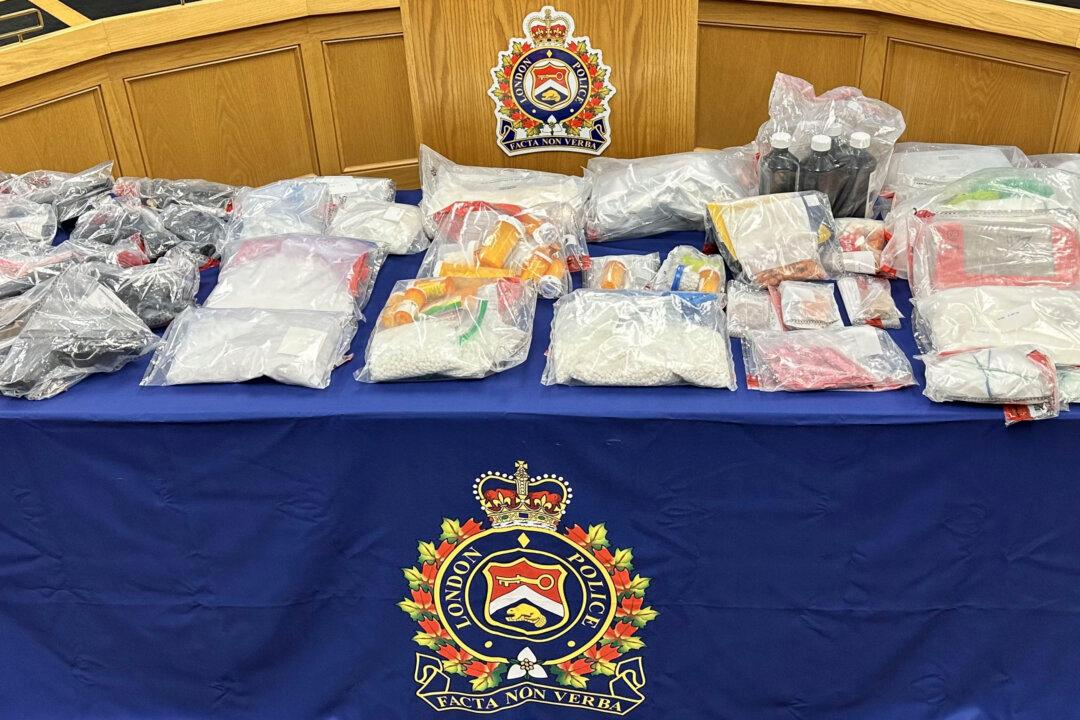London, Ontario, was the first place in Canada to pilot a safer supply drug program, and police there are now for the first time raising the alarm about the problem of diversion, or trading the drugs for more dangerous ones.
London Police said at a July 15 press conference that people who are prescribed the safer supply of opioids are selling them, or “diverting them,” to buy higher-potency drugs like fentanyl. Concerns about diversion have previously been raised in London, but this is the first strong statement on the matter by local police.





